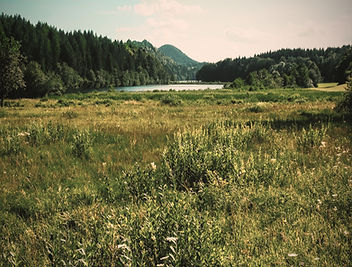Keeping Your Pups Safe in the Snow
- Robert Basauri

- Jan 10, 2024
- 2 min read

Winter can be a beautiful time, with snow making the outdoors look magical! That said, it's important to remember that our lil' pups may not share the same enthusiasm we do for the cold and snowy weather. Just like us, they need special care to ensure that they're protected from the elements. In this blog, you'll find some essential tips for keeping your babies safe.
Dress Your Dog Appropriately - Not all dogs are built for winter weather, and some breeds are more susceptible to cold than others. Smaller dogs and those with short fur may need extra protection from the elements. Consider investing in a doggy coat or sweater to keep your pet warm during walks. Ensure that it fits snugly but allows for comfortable movement.
Protect Their Paws - Snow and ice can be harsh on your baby's paws. Ice, salt, and chemical de-icers used on sidewalks and roads can cause irritation, dryness, and even chemical burns. To protect your dog's feet, consider using dog booties. These not only keep their paws warm but also provide a barrier against harmful substances on the ground.
Stay Active, But Be Mindful - Our fur-babes still need exercise, even in cold weather. However, it's crucial to be mindful of the temperature and your dog's tolerance for cold. Shorten outdoor activities during extreme cold, and opt for indoor playtime instead. Always watch for signs of shivering or discomfort, and bring your dog inside if they seem too cold.
Hydration and Nutrition - Cold weather can dehydrate dogs just as it can humans. Make sure your dog has access to fresh water at all times. Also, consider feeding your dog a bit more during the winter months, as their bodies require extra energy to stay warm. Consult your veterinarian for advice on adjusting your dog's diet accordingly.
Be Cautious of Hypothermia and Frostbite - Recognizing the signs of hypothermia and frostbite is crucial during winter. Hypothermia symptoms include shivering, lethargy, and disorientation. Frostbite may manifest as pale or grayish skin, particularly in extremities like paws, ears, and the tail. If you suspect either condition, seek immediate veterinary attention.
By dressing your lotal partner(s) appropriately, protecting their paws, maintaining grooming, and being mindful of their needs, you can ensure that your canine companion remains happy and healthy throughout the winter season.
While they're in their cute little booties and sweaters, make sure to send us a pic! We love pups and we love your pictures. Send to: info@missnellys.com
Stay safe and be well,
Miss Nelly's









Comments